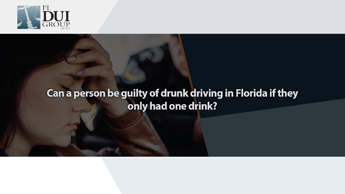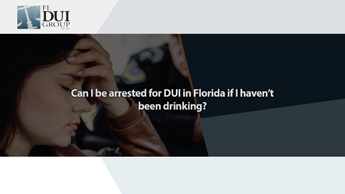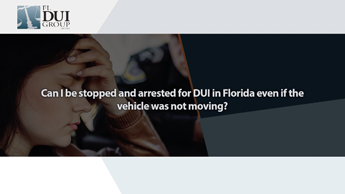101 Ways to Avoid an Orlando DUI conviction! Part 1 of 10.
DUI arrests and DUI convictions can have serious consequences, both immediate and in the future. When people speak with me, they are most often looking for advice on how to avoid a DUI arrest or how to avoid a DUI arrest turning into a DUI conviction. 101 Ways to Avoid a Drunk Driving Conviction by William C. Head, Esq. and Reese I. Joye, Jr., Esq. is a great resource to both questions and will be featured in a 10 part blog series here on the FL DUI Group Blog. The first part features ways 1-10 to avoid an Orlando DUI conviction.
1. Avoid any type of vehicle if you have become impaired by overindulging, because any means of transportation can lead to a DUI conviction.
2. Don’t assume that you can’t be arrested for DUI on private property, because you can be charged with DUI in most states, regardless of your location.
3. Even a car being towed can lead to a DUI conviction if the person sitting behind the wheel is intoxicated, so avoid even getting in the front seat of a car if you are intoxicated.
4. If sleeping inside a car after you have been drinking, do so in the back seat, with the ignition off and the keys in your pocket, with the car off the highway.
5. Breath machines are subject to error when you have been recently exposed to volatile fumes, such as lacquer, paint, gasoline, or dry cleaning fluids. Always get a second, independent test.
6. Existing “illegal per se” laws in 45 states and D.C. allow the police to make a case against you regardless of any evidence of impairment; therefore, either keep your alcohol consumption to moderate levels, or don’t drive at all after having more than a few drinks.
7. Where faced with a traditional DUI charge, and the indicated level of alcohol allows the state to have a presumption of intoxication in its favor, the defendant must introduce evidence of non-intoxication to rebut the presumption, or face virtual certain conviction.
8. If the trial judge incorrectly instructs the jurors about presumptions (making it irrebuttable or mandatory), such instruction constitutes reversible error.
9. With blood tests, if the personnel drawing the blood for the state’s test do not follow the required rules and regulations, the test results can be totally excluded from the evidence.
10. In administering any of the state’s tests, if the person operating the machine is not qualified or certified in accordance with state law, the test is invalid. Requiring strict proof of the testing officer’s certification can often lead to a dismissal or a favorable “plea bargain”, where some flaw or defect in the proof of current certification is called into question.
Excerpted from the book, 101 Ways to Avoid a Drunk Driving Conviction by William C. Head, Esq. and Reese I. Joye, Jr., Esq.
Copyright 1991 by William C. Head and Reese I. Joye, Jr. Not to be reprinted, resold, or redistributed for profit, except with written permission, but may be freely distributed electronically provided that the entire file, including this notice, remains intact.








